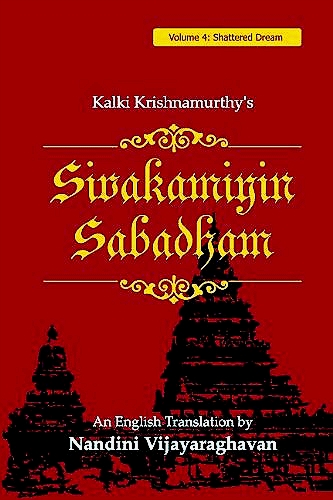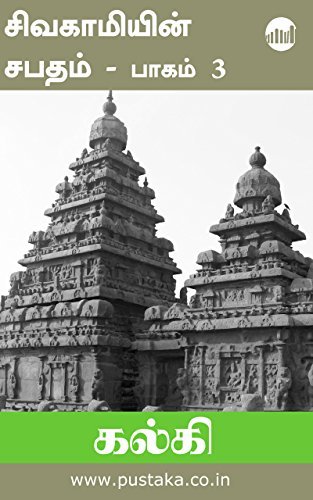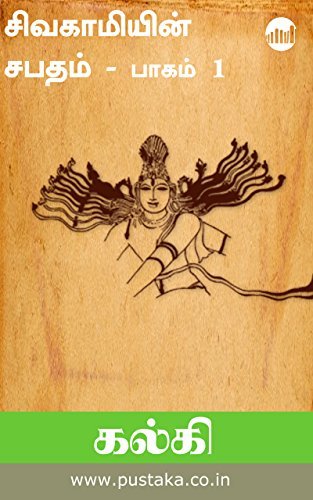
Part of Series
"To meditate lifelong At the feet of Our Lord" Kalki's choice of Thirunavukkarasar's words to end his novel is indicative of the shift from romance to reflection, from mundane to spiritual. The Great War of Vatapi, fought after nine long years of preparation, has ended in victory for Mamallar. Pulikesi meets his end in the battle. Paranjyothi, the war strategist, is not enchanted by the victory. What path does he choose to find solace? The Machiavellian Naganandi ends up a tragic hero. What makes the reader pity rather than condemn him? Honour of the state drives Mammallar to make difficult choices in his personal life. His friendship and allegiance also change on account of that. What has life in store for him? After what seems like a endless wait, Sivakami's oath is fulfilled and her honour is upheld. But why does happiness continue to evade her? Read the scintillating fourth and final volume of 'Sivakamiyin Sabadham' for the answers. You will go through a gamut of experiences and realize that the end is in fact a new beginning.
Author

Tamil language Novel Writer, Journalist, Poet & Critic late Ramaswamy Aiyer Krishnamurthy also known as ‘Kalki’. He derived his pen name from the suffixes of his wife name Kalyani and his name Krishnamurthy in Tamil form கல்யாணி and கிருஷ்ணமூர்த்தி as Kalki (கல்கி). His name also represents “Kalki avatar”, the tenth and last avatar of the Hindu God Vishnu. His writings includes over 120 short stories, 10 novelettes, 5 novels, 3 historical romances, editorial and political writings and hundreds of film and music reviews. Krishnamurthy’s witty, incisive comments on politics, literature, music and other forms of art were looked forward to with unceasing interest by readers. He wrote under the pen names of ‘Kalki’, ‘Ra. Ki’, ‘Tamil Theni’, ‘Karnatakam’ and so on. The success that Krishnamurthy attained in the realm of historical fiction is phenomenal. Sixty years ago, at a time when the literacy level was low and when the English-educated Tamils looked down on writings in Tamil, Kalki’s circulation touched 71,000 copies – the largest for any weekly in the county then – when it serialised his historical novels. Kalki had also the genius to classify the historical and non-historical events, historical and non-historical characters and how much the novel owes to history.

